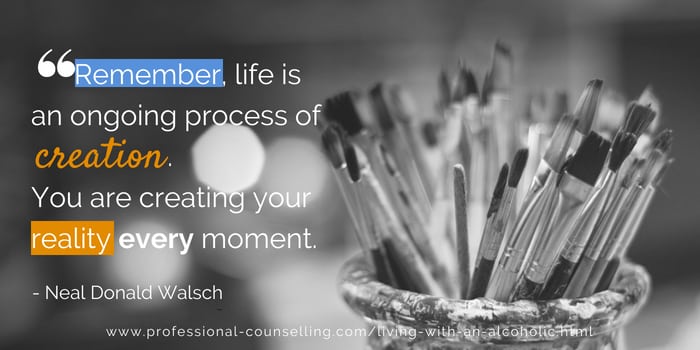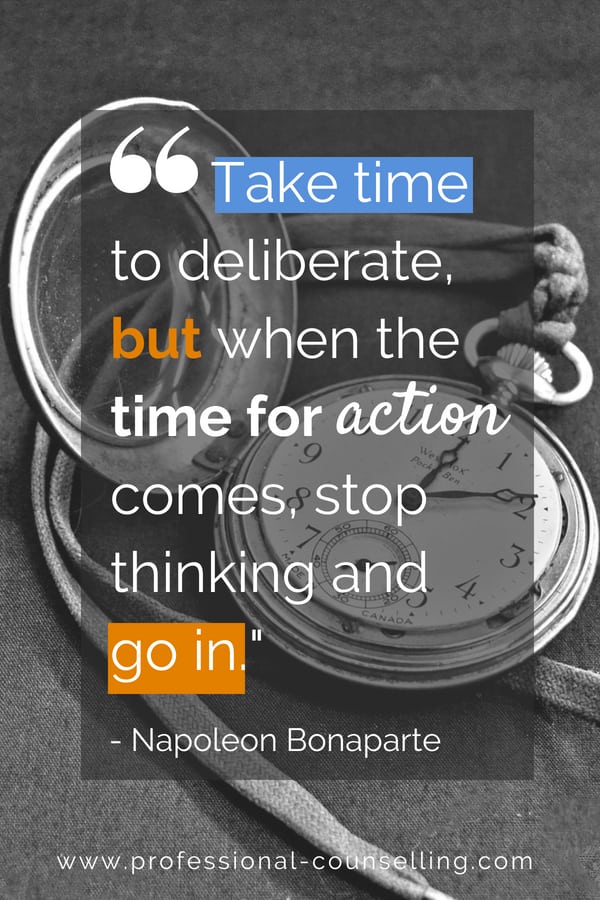Intimate Tickles Thought You Might Be Interested
Published: Wed, 01 Aug 2018 20:22:41 +0000
View Original Article
Category: Better Relationships | Author and Publisher: Elly Prior | First published: 25-11-2016 | Modified: 01-08-2018
How to start looking after yourself
Are you married to an alcoholic, or are you living with a partner who has an alcohol problem?
Are you increasingly worried about your partner’s drinking?
If so, I really hope the information here will help you to get a better insight into the relationship dynamics. Perhaps it will also help you to make some important decisions.
I can only imagine how desperate you may be feeling. And so the very best I can do for you right now is to give you the information you need to start feeling strong again. I want you to believe in yourself – I know you can tackle the problems. Doubtless you’ve been through tough times before. You can do this too!
Let’s start by taking a look at the warning signs of alcoholism. Then we’ll look at the issue of codependency, and at ways to help you cope.
 You alone are responsible for your own happiness!
You alone are responsible for your own happiness!Are you really living with an alcoholic spouse or partner?
If so, I imagine that all too often you’re feeling hurt, frustrated, angry, worried, sad and disappointed. I suspect there have also been times when you’ve felt embarrassed and ashamed.
If you have children, you’ve no doubt worried about the impact of your partner’s drinking on them too. You may even have wondered whether it’s you who has the problem. It’s likely that your partner’s tried to make you believe that his or her alcohol intake is no more than normal, and that you’re being melodramatic.
So you’re now looking for some confirmation of your suspicions – you want to know that you can trust your own judgement. You want to know that it’s not you, and if there’s anything you can do to help stop your partner sliding into the abyss.
Let’s start, then, with the warning signs from your perspective…
I want to be upfront with you – I may earn a commission from Better Help. You pay the same fee, regardless.
Warning signs that your partner is a problem drinker
10 Ways you’re affected by your partner’s drinking
- You’re avoiding functions
You’ve started trying to avoid going to functions together. You suffer from anticipatory anxiety – you worry about how much your partner will drink. You no longer want to feel let down, embarrassed and ashamed on account of your partner’s behaviour. You prefer to go on your own, or not at all. - Your finances suffer
You’re becoming more and more concerned about the financial impact of his or her excessive drinking. The relative weight – or perhaps in later stages, all – of the household and food expenses falls increasingly on your shoulders. - You’re being emotionally and possibly physically abused
You feel increasingly exposed to angry outbursts, hurtful remarks and mood swings. Your partner is becoming progressively abusive. See my articles: Signs of Emotional Abuse and Signs of an Abusive Relationship. - You’re concerned about safety
You’re worried about the potential or real impact of your partner choosing alcohol over safety and sense. Maybe your husband, wife or partner has no qualms about getting behind the wheel after having a drink. Or maybe he or she is in charge of the children whilst under the influence. You’re aware that your partner is at risk of making bad decisions in general. - You’re feeling alone in this relationship
You’re increasingly feeling on your own as your spouse or partner appears to look for opportunities to drink on his or her own. He or she no longer seems interested in spending time with you or going on family outings. - You feel unloved
You’re likely to feel abandoned and bereft of any loving attention as your partner appears to increasingly turn inwards, and focus only on their next drink. - You don’t trust your partner
You’re likely to have trouble trusting your partner as their behaviour becomes more troublesome at home, on social occasions and at work. - You’re finding secret stashes of alcohol
You’re increasingly on the lookout for new places where he or she may have hidden any bottles. - You no longer find your partner attractive
You may find it more difficult to find your partner attractive. He or she no longer seems to care for how they look, and personal hygiene may also have become a problem. - You’re considering a breakup
It’s becoming more and more challenging to have a relationship with him or her. You no longer recognise the person you once loved and perhaps married.
I can so understand it if you keep hoping that things will improve. That if only you cared more, loved more, shouted more, cried more or told them how you feel yet again, then they would moderate their drinking.
Unfortunately, all of that would only put you too at greater risk of longer-term psychological problems. And it wouldn’t make the slightest bit of difference. Any attempt at a change of behaviour would almost certainly just be a temporary one. But I suspect you’re already aware of that.
If you’re still not sure, do also read my article: Stages of Alcoholism.
 Take action! Overthinking is counter-productive. It can lead to a sense of hopelessness and potentially depression.
Take action! Overthinking is counter-productive. It can lead to a sense of hopelessness and potentially depression.The most important decision you can make
There’s only one thing that‘s likely to bring about any change. It’s if you make a really important and significant decision. You decide that from now on, you’re going to take responsibility only for your own thoughts, feelings and behaviour. It’s the only way to make dealing with an alcoholic manageable.
This change in your behaviour may prompt a change in your partner’s, either for better or for worse. Nevertheless, you’re going to be focusing on yourself. You’re going to get back in the driving seat of your life and create the life you want. It might mean instigating a breakup – even if it’s just a temporary one. And making that decision is the very best thing you can do for your spouse or partner!
There’s nothing else you can do about your alcoholic spouse
It’s okay to confront your partner with how you’re feeling, and let them know that from now on you’ll be focusing on you. That may include telling them that you’re considering ending the relationship. That’s not to try to shock him or her and manipulate them into taking action, but to make it clear that you may have to split up to simply give yourself a chance to heal.
You may find my Comprehensive Relationship Test helpful in actually making that decision – even if you’re not ready to take action right now.
Does the very idea of making a life for yourself, including potentially ending your relationship, fill you with horror? If so, there may be something else going on…
Codependency and symptoms of alcoholism
The Mirriam-Webster dictionary⧉ defines codependency as:
“A psychological condition in which someone is in an unhappy and unhealthy relationship that involves living with and providing care for another person (such as a drug addict or an alcoholic)”
For sure, codependency is a problem in many such relationships – to a greater or lesser extent.
However, I have a real problem with the blanket statement that if one is an alcoholic, the other is co-dependent!
What does a codependent relationship look like?
You may see your partner as a taker. The question is, then, to what extent are you the caretaker. In a healthy relationship, both partners take from each other and take care of each other. In a codependent relationship, both partners are on opposite sites of the continuum: one only takes, and the other only gives.
Here’s a test to help you become aware of where you are on that spectrum…
(Oh, just before you have a look – this is in no way designed as a judgement of you. You’ll have your own entirely valid reasons for thinking, feeling and acting the way you do.)
23 Signs that yours is a codependent intimate relationship
- You’ve paid for stuff your partner wanted or needed but couldn’t afford (or said they couldn’t afford), or to buy his or her affection. The latter means you’re really manipulating the situation. I say that without judgement as I can so understand it. Being loved is an essential emotional need, but… it has to be the right kind of love you receive, and for the right reasons
- You’ve got into debt to support your partner
- You say ‘Yes’ when you really mean ‘No’ and vice versa, to avoid potential trouble
- You’re unable to focus on anything else but your partner’s next move
- You’re abusive towards your partner, or your partner’s abusive towards you
- Your self-esteem is in your boots and you’d do anything at all to get a little bit of – what appears to be – loving attention.
- You end up feeling guilty and ashamed, hating yourself for having succumbed to your partner’s requests for help
- You either want to win every argument, or you don’t even realise you have an opinion, let alone have the right or confidence to state it
- You’ve lost all interest in anything that could be personally fulfilling or rewarding. All your energy goes into managing your relationship
- You try to control situations to avoid being confronted with – and exposed to – your partner’s troublesome behaviour
- You help your partner get out of trouble with work, friends and family – you make the phone call with the excuses, you pay off the debt, you write the letters and the cards, you make the apologies
- You feel resentful that he or she doesn’t realise how much you do for them
- You stay in the relationship, despite knowing there’s no hope that the situation will improve
- You blame your unhappiness on your partner, or you claim responsibility for his or her alcoholism
- You make excuses for your partner’s behaviour – (s)he’s had a tough day/time, (s)he’s had a troubled childhood, (s)he’s suffered a trauma
- You believe that with your love, care and attention your partner will heal and eventually overcome their addiction
- You feel guilty when you do manage to do something for yourself
- The idea of being alone really scares you
- If you’re really honest with yourself, you can’t see yourself ever breaking up and striking out alone
- You know you’re avoiding facing up to your partner’s dishonesty, abusiveness and general selfishness
- You allow your own emotional and physical needs always to come second to those of your partner
- You manipulate your partner and/or events in order to be able to save your partner from getting themselves into trouble
- You often feel hopeless and depressed
Do you need codependency counselling or treatment?
Let me answer the latter first. No, you don’t need treatment. You’re not ill!
However, if you’ve discovered that you are codependent, then codependency counselling is absolutely the very best way to help you overcome it.
In any case, the very fact that you’re on this page means that your husband or wife is most probably an alcoholic. Sharing your concerns, therefore, with a professional counsellor and getting their support and advice can certainly speed up your recovery. You can (re)create your identity – free from what’s happening with your partner.
To help you both (re)build a healthier relationship and focus on all the positives, you’ll find my Loving Communication Kit for Couples really useful.
Save $12 and your relationship
Get the Loving Communication Kit and the Comprehensive Relationship Test together
Only $36 (saving $12)
- Pay safely, securely and conveniently – Immediate and easy access
- Your email address is safe, it won’t be passed on to anyone else – ever!
- No further emails from me - promise!
Self-help for when your partner, husband or wife is an alcoholic, and/or you’re in a codependent relationship
I would love you to seek counselling to help you get over that codependency. But, I would also like you to choose something right now from the following by way of self-help…
15 Self-help strategies and tips
- Decide what you do have control over
Ask yourself, in your heart of hearts, what it is that you really want for yourself that you do have control over? Take a few days and write a list – think small and big, here, now and in the future. What is and isn’t acceptable to you? - Decide what your values and beliefs are
Know what you stand for and what you believe in, and check your own feelings and behaviours against those - Set boundaries
Once you’ve done the above, start learning to say “yes” and “no” only when you really mean “yes” and “no”. Learn how to stick to your guns and not give in when you’ve given your answer (see the video further down) - Become assertive
I know, it’s much easier said than done, but if you’ve decided what you stand for, what you want to do, what your values are and what your boundaries are, it really does become much easier to stand up for yourself - Get creative
Re-engage with some abandoned and long-forgotten projects and get creative again - Invest in relationships with friends
And (re)connect with extended family. You’re a parent, child, aunt or uncle, neighbour, friend, acquaintance, volunteer, mentor, teacher, etc. Invest in that role but be careful not just to give – accept from others as well! (But do be aware that those you give to may not be givers themselves.) Remember: there’s life outside of being married to an alcoholic. You’re important! - Plot a different future
Invest in yourself. There are so many free lessons offered online in just about any subject you can think of. Start expanding your horizons and investing in your self development. - Be fearless in your honesty
Towards others, of course, but specifically also towards yourself - Challenge yourself to do better
Become the very best version of yourself - Reward yourself
– for every tiny step, and all your achievements, big or small - Look after yourself
Become your own best friend. Aim to meet your essential emotional needs in balance - Focus on yourself
Focus on your feelings, activities, work and interests. Bring back that focus immediately if you find it shifting towards your partner. That’s the most important thing anyone can learn when living with an alcoholic. - Stop blaming your partner,
your parents, your work, your friends or anyone/anything else – including yourself. Blame won’t help you – or your partner. - Learn to accept yourself
You’re imperfect – we all are! 🙂 - Learn how to relax deeply
I know you may think it’s impossible, but that’s only a thought. There’s no need to believe your thoughts! You can help yourself to relax immediately with the breathing exercise on my page: Tips to Relieve Stress
You too can set boundaries when you’re married to an alcoholic
Here’s why and how you can stop being a caregiver, yet still be a loving partner…
Finally
You can also learn more about what you can do to help by contacting Al-Anon, a group set-up by and for people just like you. You may find it a relief to know that other partners are going through much the same as you.
You probably already know your wife or husband is an alcoholic. Do yourself and them a favour now – focus on yourself. Don’t wait any longer before you take some decisive action when you know you’re living with an alcoholic.
Please, rate this article …
I really hope this article is of help to you. 🙂
I frequently update my articles based on feedback, therefore I really value your vote.
Thank you so much in anticipation. 🙂
Do you need help?
Talk to an online counsellor…
Your problem is never too small or too big, too silly or too complicated to ask for help from a licensed therapist.
They’ll be happy to help…

I want to upfront with you – I may earn a commission from Better Help. You pay the same fee, regardless.
Feel free to ask for help, or comment on this article

Hello you! 🙂
It’s me – Elly Prior, I’m the Founder and Author of this site. I’m a ‘real’ person and I check the comment sections daily.
Do feel free to ask for help. I would gladly write a few lines to help you.
If my article in some way is of help to you, please let me know. I’d be so delighted!
Oh, and English is not my native language (I lived in the UK for many years). Whilst my articles are edited, my comments here are spontaneous and unedited.